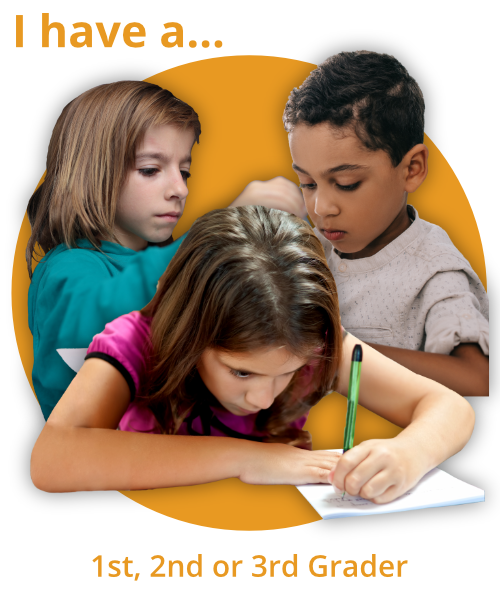Knock Down the Pink Tower? Say It Ain't So!
I sat there on the floor playing with the pink tower for the hundredth time, rearranging the cubes in pretty patterns on the rug, more than a bit entranced by the designs. My mother smiled at me from across the room as she dusted a shelf. I sighed and sheepishly placed the cubes carefully back on the stand. I scooted down and lay on the rug, rubbing my arms against the chill. It was summertime in Texas, and as usual, my mom had the fans on full whirl and the air conditioner blasting.
My mother's voice rang out, "I just have a little bit more to do here and I'll be done. It won't take me long, okay?" That was a lie. She spent hours during the school year after the children left at noon, arranging the classroom and creating new works before coming home. During the summer, she was at school almost daily, working alone in the quiet, preparing for the following year.
She was never done. Literally never.
I looked up at the ceiling and pursed my lips, contemplating the tower that had been on that same stand all my life. I wasn't three years old any more. I was attending college majoring in education. I was not quite a student teacher, had just met the man who would one day become the love of my life, and I spent my summers at home with my parents. When I wasn't working at a local daycare, I was hanging out at preschool with my mom. It was the norm.
College life was suspended for another month, and I was itching to get back, even though I found my education classes lacking. My college professors hadn't mentioned Maria Montessori once, and this irked me to no end. Not even when we were discussing the textbook on educational theories! The paragraph on Montessori was passed right by in lieu of Piaget, whom I came to find out much later, was a student of Maria's. This fact was completely ignored.
For the most part, my classes were very good, focused firmly on progressive education. Still, for some reason I insisted on being a regular pain in the neck. See, what being raised Montessori had done for me was elevate my expectation of early childhood education. Normally, this is a good thing. But some of us turn out to be goody-two-shoes about the whole thing, and I was pretty much among the worst of the bunch. I challenged practically every statement any of my professors made with "But in Montessori..." and at the end of every semester, they were all probably terribly relieved to simply give me an A and ship me off to the next class. I was even irked by that. Shouldn't I have had to work a little harder to earn my degree? Summers were the best because my mother was always happy to give me lessons on Montessori and talk educational theory with me until the sun went down while she worked. A party girl I was not. I used my free time well.
Sitting up abruptly, I broke the silence with another question. "Mom? Does every Montessori teacher give the pink tower lesson the same way?"
She didn't hesitate. "Yes. For the most part. Our trainings vary, of course, but the pink tower lesson is more or less consistent. Except..." She let the word dangle.
My curiosity was piqued, and I sat up, ready to learn. My mother was sitting on a desk with a smirk on her face and a twinkle in her eyes. She fiddled with some trinkets in her hand. "Except what?"
Her cheeks were pink with excitement. She leaned forward conspiratorially, lowering her voice. "I don't know exactly where, but some say that Maria herself let the children build up the tower and knock it down with a single blow." She stopped smiling and looked at me intently, letting it sink in.
My jaw dropped open in disbelief. "She wh-wh-what?" I sputtered in horror with an awkward laugh. With those words, my mother had crumbled the tower of Montessori perfectionism I had built in my head. And she knew it. She had done it on purpose.
It's true. Sometimes we come upon a quote from Maria that shocks us and makes us reconsider everything we've been taught in the name of Montessori.
I'd like to say that after this moment I stopped being such a pain in the neck to my professors, but I'm ashamed to tell you that it isn't true. The summertime epiphany in the preschool classroom got the ball rolling, but it took me years to understand the lesson my mother was trying to teach me that day.
In Dr. Montessori's Own Handbook, Maria describes the pink tower thus:
"With these cubes the child builds a tower, first laying on the ground (upon a carpet) the largest cube, and then placing on the top of it all the others in their order of size to the very smallest. (Fig. 10.) As soon as he has built the tower, the child, with a blow of his hand, knocks it down, so that the cubes are scattered on the carpet, and then he builds it up again."
Wait - Montessori said whaaaa? Did I read that right?
You did. And you didn't. Let's get some historical perspective. Sometimes reading Dr. Montessori's books - most of which are collections of her lectures - is like peeking into her mind while she was developing her theories. Dr. Montessori's Own Handbook was published in 1914, fairly early in the development of her method. Montessori's description of the youngest children knocking over the pink tower was an important observation, but strangely, this technique is not taught in Montessori training today. Hmm. In fact, I can't say I've ever seen a Montessori teacher actually advocate for knocking the tower down. There must be some valid reasons why.
Take a look at the photo above. Clearly, the child that Maria refers to is a toddler! At a certain developmental stage (in particular the 0-3 age), knocking down a tower brings great joy. Knocking down blocks is developmentally appropriate for the child in the photo. He is discovering the physics of force and gravity! There is absolutely nothing wrong with these discoveries. It does, however, change the nature of the material as a work, and if your aim is to model and encourage care of the materials and hone in on visual discrimination, then that is what we should expect from the child in the 3-6 classroom, not abuse of the materials. Three to six year olds are old enough to be able to control the impulse to knock down in favor of the greater impulse to create balance and patterns. It's simply in the nature of the child.
Here's another example: think about throwing. A child of the age of two likes to throw, right? It develops upper body strength. Very healthy! But what's better for throwing? A heavy pink tower cube whose paint will chip easily and perhaps cause bodily harm to a fellow classmate? Or a simple stone thrown into a stream outdoors? Or even a sock into a basket? As a teacher, I choose the basket for gross motor skills for 0-3 year olds. I think it's more appropriate. And I choose the pink tower for visual discrimination for 3-6 year olds. That's more appropriate. For knocking down items to explore physics, I always recommend a set of small tabletop blocks on the floor on a rug. A cardboard set of nesting blocks works well for this, too. They are light enough not to harm anyone and durable enough to land somewhat gracefully on a rug.
Reading that Maria allowed the children to do things differently than we were trained to do can really shock us, and this is a very good thing! It teaches us that if we are to guide effectively, we must understand not only the child's current stage of development but also the appropriateness of the material. This is why I believe more than anything that rather than following a prescriptive approach in the classroom we should regularly do some meditating on the materials, presenting challenges to the status quo and questioning our own method in order to understand it better. We should consider the value in each and every material we offer the children and by having that internal debate, we grow.
If something you notice that benefits a child also directly opposes what you read in The Montessori Method, think about it carefully and make a decision based on your own interpretation of the needs of your children in your class, not Maria's interpretation. This part of the spiritual preparation of the teacher is a soul-searching experience we should engage in on purpose. Maria Montessori certainly did. Her method was modified during the course of her entire career. Shouldn't yours be as well?
So for me, as a Montessori teacher, knocking down the pink tower with a single blow of the hand is a no-go. Once upon a time, Maria fully considered it legit. So what? She grew up eventually, challenged her own assumptions, and learned from her mistakes.
And that is a lesson to remember.


